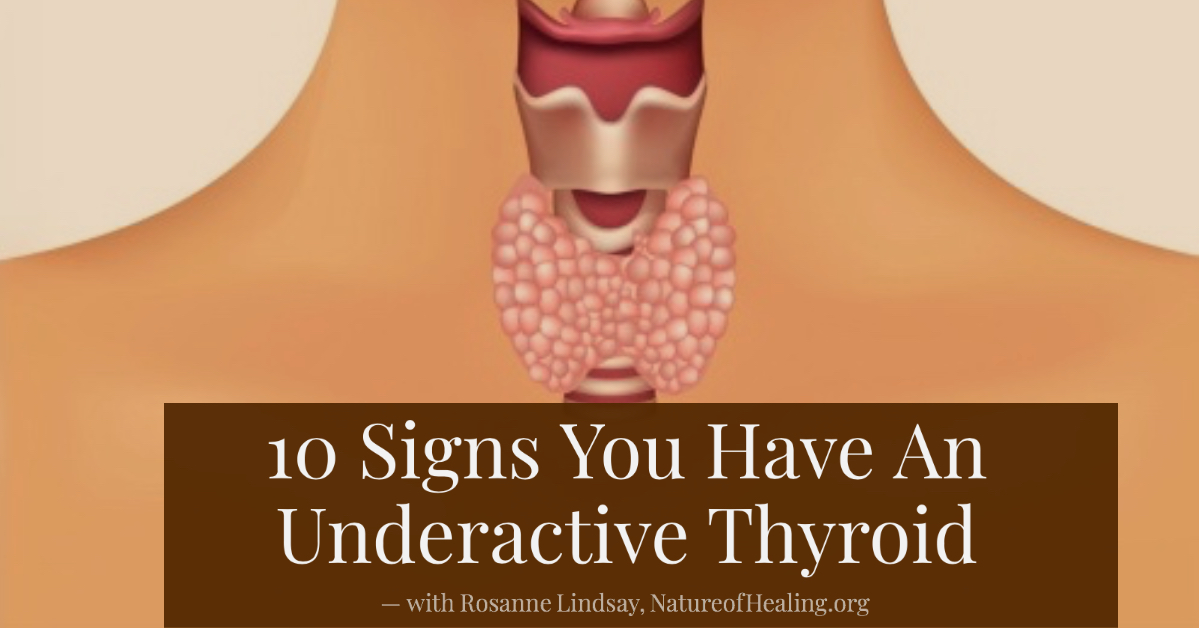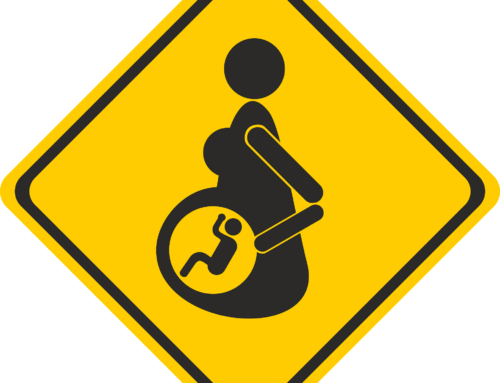 The thyroid is a butterfly-shaped organ in the front of the neck that produces the hormones which regulate the body’s metabolism, including heart rate, body temperature and weight.
The thyroid is a butterfly-shaped organ in the front of the neck that produces the hormones which regulate the body’s metabolism, including heart rate, body temperature and weight.
Those who understand the consequences of an underactive thyroid have received a diagnosis of hypothyroidism. In the U.S. the prevalence of thyroid disease is 12%, or 30 million Americans. Of those with thyroid disorders, 36% are considered hypothyroidism, of which 80% are autoimmune, also known as Hashimoto’s thyroiditis.
In hypothyroidism, low levels of thyroid hormone production result in a decreased capacity to turn food into energy. Unfortunately, the majority of people with hypothyroidism go undiagnosed due to outdated medical lab testing, which affects far more women than men.
Iodine Deficiency Disease
A medical doctor will tell you that hypothyroidism is a life-long condition that must be treated medically. What a medical doctor won’t tell you is that thyroid disease is Iodine Deficiency Disease. Any deficiency disease can be reversed once you know the cause, since you now have the cure. You don’t need a medical doctor to tell you that you are iodine deficient. You can come to that conclusion on your own, based on over 300 symptoms that identify an iodine deficiency. Here are 10 common symptoms:
- Fatigue after sleeping 8 to 10 hours a night or needing to take a nap daily
- Weight gain or the inability to lose weight and high cholesterol
- Mood issues such as mood swings, anxiety or depression
- Hormone imbalances that manifest as PMS, irregular periods, infertility and low sex drive
- Muscle pain, joint pain, carpal tunnel syndrome, or tendonitis
- Cold hands and feet, feeling cold when others are not, or having a body temperature consistently below 98.5
- Dry or cracking skin, brittle nails and excessive hair loss.
- Constipation
- Brain fog, poor concentration or poor memory
- Fibrocysts of the ovaries and breasts can predispose to cancer
 A doctor will order blood tests to check hormone levels for TSH, T3, and T4. If your thyroid hormone levels fall in the prescribed range, then artificial thyroid hormones T4 (Synthroid) or T3 (Cytomel) could be prescribed, for life. However, the body makes more than two thyroid hormones. And synthetic hormones do not contain enough iodine to replenish the thyroid’s needs.
A doctor will order blood tests to check hormone levels for TSH, T3, and T4. If your thyroid hormone levels fall in the prescribed range, then artificial thyroid hormones T4 (Synthroid) or T3 (Cytomel) could be prescribed, for life. However, the body makes more than two thyroid hormones. And synthetic hormones do not contain enough iodine to replenish the thyroid’s needs.
All the synthetic thyroid hormones in the world will not bring full function back to your thyroid because taking outside hormones increases iodine deficiency. And there is a link between iodine deficiency and cancer.
Thyroid Disease, Iodine, and Cancer
Today, one in seven women will develop breast cancer during her lifetime. If you have autoimmune thyroid disease, your risk of breast cancer is higher. This is because iodine deficiency causes estrogen production to become unbalanced and dysfunctional. In addition to thyroid hormone therapy, doctors may prescribe estrogen therapy. When people take artificial hormones to suppress symptoms, the cause is ignored and the result is:
- Total body iodide/iodine deficiency increases
- Breast tissue becomes more sensitive to estrogen
- Iodine deficiency is a cause for breast cancer. [i] [ii] [iii] [iv] [v]
- The incidence of breast cancer twice as high in women taking thyroid hormone for more than 15 years (19.5%) compared to those on thyroid hormones for only 5 years (10%).[vi]
- There is an increased risk for ovarian, thyroid, prostate (in men), and other cancers
- Blood glucose is affected by high thyroid levels or low thyroid levels, so there is a link between thyroid disease and type 1 and 2 diabetes. Thyroid disease in diabetes is 10% vs. 6.6% in the general population
Everyone needs iodine since every cell in the body requires iodine for metabolism. The body needs at least 12.5 mg of iodine a day. The thyroid needs 6 mg a day, the breasts need 5 per day, and ovaries and other glands need at least 2 mg a day. In a 2004 study in the journal Breast, taking just 6 mg iodine daily for six months stopped the pain of fibrocystic breasts.
Iodine must come from food. Foods high in iodine include seaweed, cod liver oil, eggs, raw organic dairy, organ meats, and cranberries. However, due to soil erosion, pesticide use, and toxins from our environment, foods do not often supply enough of this mineral. Supplementing with iodine using herbs such as kelp, bladderwrack, black walnut hulls, or various forms of liquid iodine/iodide, such as Lugol’s iodine, can make the difference in reducing lumps, bumps, and cysts, as well as balancing thyroid function. Co-nutrients such as B-vitamins, zinc, manganese, and selenium are also best found in foods or food-based supplements.
A typical American who follows the U.S. Recommended Daily Allowance gets about 240 ug/day, enough to prevent goiter, but not enough to prevent subclinical thyroid disease. In Japan, where thyroid disease and cancer is lower than in Europe and the US, people consume as much as 200 mg, or 2,800 times more than the average American. In 1911, people consumed 300-900 mg daily without incident; this is over 2000 times the RDA. Iodine doctor, Dr. David Brownstein recommends at least 0.11 mg iodine per pound per day so a 50 lb child would get 5.5 mg of iodine daily.
Besides cancer prevention, iodine strengthens the immune system to prevent colds, allergies, asthma, miscarriages, mental retardation, and it balances weight. Iodine is also a powerful antimicrobial, antiviral, and antifungal. It gives energy.
Five Causes Of An Underactive Thyroid:
Goitrogens are iodine antagonists. They prevent iodine from binding to your cell’s iodine receptors, and include:
- Environmental toxins and heavy metals (mercury in amalgams, vaccines, metals in foods and air).
- Chemicals & Radiation: prescription drugs, x-rays, EMF exposures, radiation in atmosphere, household cleaners, and make-up.
- Halogens (Cl, F, Br): chlorine, fluoride in water, fluoride toothpaste, bromine in baked goods, perchlorate in water supply from rocket fuel.
- Goitrogens in foods soy and cruciferous vegetables in bulk.
- Inflammatory foods and food allergens such as gluten, and wheat products due to the herbicide glyphosate (Ready Roundup).
- Low hydrochloric acid in the stomach, which decreases absorption of minerals in the gut.
- Smoking
- Stress
High rates of thyroid disease and thyroid cancer show us that we have to take extra measures to ensure that our bodies are getting enough iodine, which means that we need to be aware of balancing supplementation along with detoxification. For the Ten Essential Steps to a Healthy Thyroid, see my blog here.
 For more information on the causes and solutions for thyroid disease, pick up my book, Free Your Voice, Heal Your Thyroid, Reverse Thyroid Disease Naturally.
For more information on the causes and solutions for thyroid disease, pick up my book, Free Your Voice, Heal Your Thyroid, Reverse Thyroid Disease Naturally.
Rosanne Lindsay is a writer, author, and Naturopath under the Turtle Island Provider Network, and President of the National Health Freedom Coalition. She is author of two books: The Nature of Healing: Heal the Body, Heal the Planet, and Free Your Voice, Heal Your Thyroid, Reverse Thyroid Disease Naturally. Find her on Facebook at Natureofhealing and consult with her on Skype or Zoom for custom healing protocols. Find her at natureofhealing.org.







